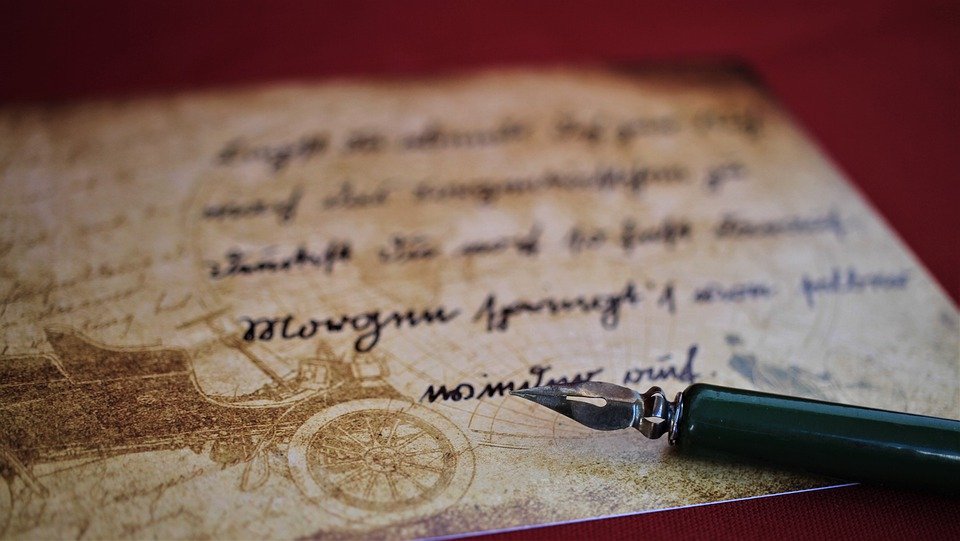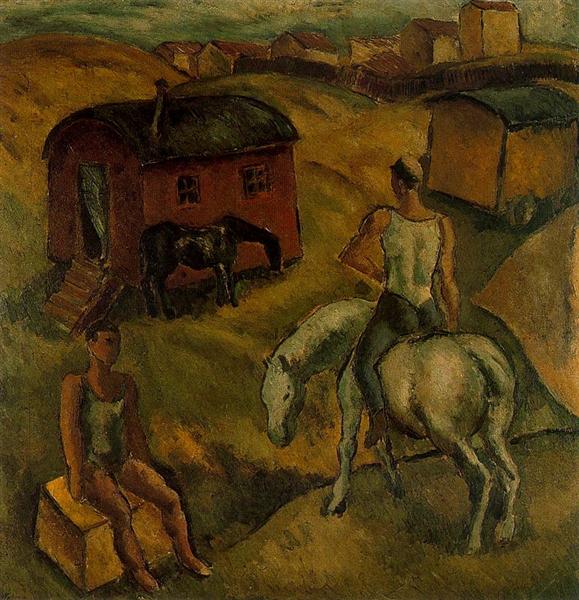These crazy times seemed to be the perfect time to re-start my Deal Me In Challenge and perhaps not so surprisingly, my card-choice led me to a very crazy poem, The Mad Gardener’s Song. Lewis Carroll is well-known for his zany poetry and stories and this one is no exception. It also lines up with my activities and planned activities of late …. gardening. Of course, there is no connection to the mad gardener and me. Perish the thought! I’m quite sane. Really ….! 😂😜

Lewis Carroll
The Mad Gardener’s Song
by Lewis Carroll
He thought he saw an Elephant
That practised on a fife:
He looked again, and found it was
A letter from his wife.
“At length I realise,” he said,
“The bitterness of Life!”
He thought he saw a Buffalo
Upon the chimney-piece:
He looked again, and found it was
His Sister’s Husband’s Niece.
“Unless you leave this house,” he said,
“I’ll send for the Police!”
He thought he saw a Rattlesnake
That questioned him in Greek:
He looked again, and found it was
The Middle of Next Week.
“The one thing I regret,” he said,
“Is that it cannot speak!”
He thought he saw a Banker’s Clerk
Descending from the bus:
He looked again, and found it was
A Hippopotamus.
“If this should stay to dine,” he said,
“There won’t be much for us!”
He thought he saw a Kangaroo
That worked a coffee-mill:
He looked again, and found it was
A Vegetable-Pill.
“Were I to swallow this,” he said,
“I should be very ill!”
He thought he saw a Coach-and-Four
That stood beside his bed:
He looked again, and found it was
A Bear without a Head.
“Poor thing,” he said, “poor silly thing!
It’s waiting to be fed!”
He thought he saw an Albatross
That fluttered round the lamp:
He looked again, and found it was
A Penny-Postage-Stamp.
“You’d best be getting home,” he said,
“The nights are very damp!”
He thought he saw a Garden-Door
That opened with a key:
He looked again, and found it was
A Double Rule of Three:
“And all its mystery,” he said,
“Is clear as day to me!”
He thought he saw an Argument
That proved he was the Pope:
He looked again, and found it was
A Bar of Mottled Soap.
“A fact so dread,” he faintly said,
“Extinguishes all hope!”

While this poem is known as a “nonsense poem,” I’m very careful to question if it actually is nonsense. Don Quixote is viewed as insane by his contemporaries, but is he really?; King Lear’s fool is a fool, but is he really?; Plato’s escaped prisoner in The Allegory of the Cave is nuts, but is he really? Life itself is ripe with many paradoxes and it pays to keep your eyes open and your brain fresh to discover them. So let’s take a look at the poem.
The first thing I noticed is that the “mad gardener” seems to prefer what he thought he saw or imagined rather than what actually IS. Reality can be mundane (although not always) and the imagination more interesting, which reminds me of Don Quixote. For the most part, the gardener tends to prefer animals to people or things; he does not appear to care for his wife or his sister’s husband’s niece. Initially I thought what he first saw or dreamed made more sense than what was actually there, but when you look closer, it’s not a fast rule, as occasionally reality appears more sensible.
And what is “the double rule of three”? I found this definition: The Double Rule of Three, sometimes called Compound Proportion, teaches by having five numbers given to find a sixth which, if the proportion be direct, must bear the same proportion to the fourth and fifth, as the third does to the first and second. Lewis was a mathematician, so it’s not surprising he’d insert this rule into his poem. As clear as day to him perhaps, but not to me!!
For the most part, this work appears to be a poem of nonsense, meant to be humorous but I do think looking deeper tells us something about the writer at least, and perhaps how we respond to it tells us something about ourselves. I do like Carroll’s absurdity so the poem was a pleasure to read. It was first published in his book Sylvie and Bruno, a book that was apparently lacking Carroll’s usual good humour and charm. The “song” was recited throughout the book in little snippets and doesn’t have much relation to the story; again it’s there for humour and entertainment. I did enjoy the insertion of “he thought he saw a Garden door that opened with a key,” which of course reminds me of Alice in Wonderland, a favourite of mine.
And for poetry buffs, the poem is comprised of 9 stanzas which have 6 lines each and are arranged in the rhyme scheme of ABCBDB.
Since many of us are house-bound, or at the very least have more time on our hands, I’m going to offer some challenges in my upcoming reviews. It’s up to you to accept them or not. The challenge for next 5 days: see how many paradoxes you can find, in life or in literature or wherever you can find them?!
PARADOX: a seemingly absurd or self-contradictory statement or proposition that when investigated or explained may prove to be well founded or true.







Looking for paradoxes sounds like a lot of work. I think I’ll just read instead 😉
Loafer! 😉
Yep, call me Bookstooge McLoafer, private eye
😀
The Double Rule of Three is clear as mud to me too! 😀 I actually enjoyed the poem. I don’t understand a lot of poetry but this was fun in the way a campfire song or similar is fun to sing.
I will be on the lookout for paradoxes though I’m afraid I might not recognize them.
Well, your comment spurred me to add the definiton of “paradox” to my post! Thanks, Ruthiella!
Oh, that’s a fun one. I’ve never seen that before.
This was my first exposure to it too. I do need to read Sylvie and Bruno one day.
mudpuddlesoup2.blogspot.com that’s where i am now… wonderful poem and love Dodgson! and spectacular pics as well… this is yet another attempt to comment which probably won’t work either…
I found you, Mudpuddle, but I’m having a difficult time commenting on blogger sites unless there’s a pop-up box. I will make another attempt though.
hooray!!
Glad it worked!
Thanks for making me look again at this poem, I agree, a first quick read does leave me with a feeling of sense that became more unsettled each time I re-read it. Interesting.
Nice challenge. I’m off to clarify how I define the boundaries of paradox.
it kind of made me want to inhabit the imagined world. Well, at least for awhile it would be fun.
I’m looking for paradoxes myself. I tend to link them with oxymorons and irony. I need more practice to make the distinctions. Thanks for stopping by, Cath!
I’d never read this poem before. Your analysis of it was delightful.
Thanks for your kind words, Lydia! Glad you enjoyed it!
Great post! I don’t think I have read this one before. I think I will start catching up on my Deal Me In challenge in the next few days… I did a few in Jan/Feb and then stopped. I probably won’t post until I have drawn a few more cards, though.
I’m glad to know that I’m not the only one behind! 😅
Lewis Carroll was a mathematician AND a philosopher who taught RESEARCH METHODS where his poems and work is used as an illustration of how to tackle the epistemological issue of how man gets knowledge.,…That takes you to hypothesis and stats and building questionnaires and producing a research result. His laughter ( the mad hatters tea party) is at how people are trapped in the abstract because they do not understand the difference between first and second order meanings..so they (inductively) go round in circles….
Thank you so much for the comment, Carl. Somehow I missed it until now. I love that sort of stuff. I knew Carroll was a mathematician and I thought I saw that he had a book on symbolic logic?? I should read more about this. For some reason, mathematics scare me but I am completely interested in philosophy and logic. I’d really like to educate myself on what Carroll is trying to communicate. If he went to the trouble to communicate it, I can certainly go to the trouble to learn it. Thanks again!